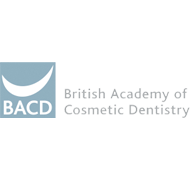Denture-induced stomatitis is a condition caused by candida, a fungus infection. It is manifested as redness in the gum covered by a denture, often without soreness. Persistent cracking or soreness at the corners of the mouth (angular chelitis) may also be a sign of oral candida infection.
Candida is often present in the mouth without causing symptoms, even in healthy people. Wearing a denture increases the accumulation of plaque (bacteria and other micro-organisms such as candida). If the denture is not kept clean and oral hygiene is poor, candida and bacteria can cause inflammation of the gums under the denture. Some general health problems can increase the susceptibility to candida infections, for instance, diabetes, nutritional deficiencies and medications such as steroids and antibiotics.
Denture – induced stomatitis is aggravated if the denture is ill-fitting. The dentist will examine the mouth and dentures and give advice on whether the denture needs adjustment or replacement.
In the treatment of denture-induced stomatitis it is important to keep the mouth, teeth and dentures clean to control the candida infection. The following measures will help:
- Brush the teeth and dentures thoroughly, especially the surface against the gums
- Avoid frequent intakes of food or drinks containing sugar and refined carbohydrates
- Take the denture/s out at night and soak them overnight in an anti-bacterial solution such as hypochlorite or chlorhexidine. These are available from any chemist. Milton should not be used for dentures containing metal parts.
- If the condition does not improve with these simple measures, the dentist may arrange further tests and prescribe anti-fungal medication. Alternativelya special gel is applied to the fitting surface of the denture after meals. The course of treatment lasts a month and should be completed even if the mouth appears better after one or two weeks.








